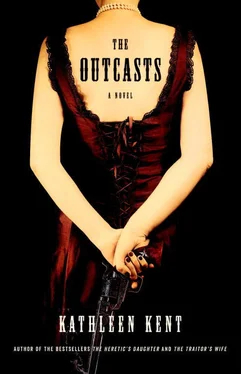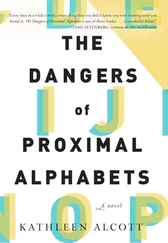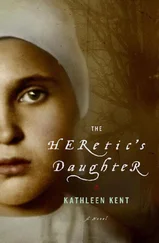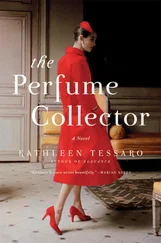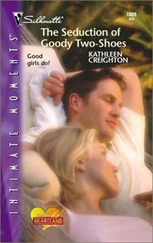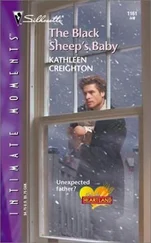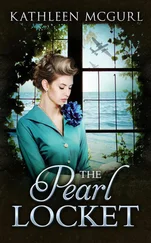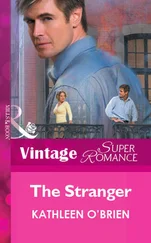“Mr. Cannon, you have an honest face. And so do I, which is why I’m so successful at what I do. I’m a confidence man and a burglar. But I’m seventy-five years old and I have tuberculosis. Now, I’m being straightforward with you because I want you to know that I’m going to offer an exchange that might be to your benefit.”
He gestured to the chair and Nate sat down again.
“Someone who fought at Spotsylvania told me that the Union’s Major General Sedgwick was killed by a sniper with a Whitworth who was positioned a thousand yards away. Do you believe that?”
Nate had heard the story too, but he cocked his head and waited.
“It captured my imagination, Mr. Cannon, and it’s a thing that I would like to see before I die.”
Nate propped the rifle against the wall again. “And you, being a betting man, might like to make some money on the show as well.”
Gorman grinned and leaned across the table. “I know just about everyone there is to know in New Orleans. So there’s a good chance I may know your man.”
“And you’re so sure I’m looking for a man?”
“As sure as I know you’re from Texas, Mr. Cannon.”
Nate resisted the impulse to return the smile. He said, “It shoots past eight hundred yards.”
Gorman turned and faced his partner, nodding. The brilliantined man got up and walked out the door, disappearing into the street.
Nate reached for the whiskey, and as soon as his hand closed around the glass, Gorman placed his palm over the rim, holding it down.
He smiled apologetically as he slid the glass out of Nate’s hand. “Don’t drink that.”
Nate pushed the beer glass away as well and asked, “What’s your offer, Mr. Gorman?”
“To give you the whereabouts of your man, and believe me, if he’s still in New Orleans, I can find him.”
“In exchange for…?”
“Nine hundred and eighty yards.”
Gorman’s smile had hardened and he tipped his head back in a watchful way. “Nine hundred and eighty yards to your target.”
Nate opened his mouth to ask what the target was, but Gorman stood abruptly and motioned courteously for Nate to follow him out onto the street, saying they had but a short way to travel.
“I’m not leaving until I know where we’re going.”
“Why, to church, Mr. Cannon.” Gorman’s guileless smile had returned and Nate stared hard at him for a moment, but he finally stood and followed Gorman into the street.
After Nate was assured that his horse and tack would be left entirely unmolested, the two men walked along St. Charles Avenue, passing the gambling places Nate had done his best to ignore on the way to the Buffalo House. He saw the barefoot boy standing in the same doorway as before, gawking at Nate walking alongside Gorman. The boy gave Nate a tentative wave as though greeting a newly useful acquaintance.
Gorman walked at a leisurely pace towards Canal, and when they reached the wide thoroughfare, he turned left, away from the river. To Nate it seemed that every woman, man, and child greeted Gorman in the same friendly, deferential way, as they would any respected elder, and Gorman often stopped for lengthy conversations that, instinct told Nate, were encoded with some deeper meaning.
They skirted the towering statue of Henry Clay, planted in the middle of the common area behind a simple post-and-chain barrier, and moved beyond hotels, inns, restaurants of every description. Gorman turned right at North Rampart Street and, once the noise of Canal Street had faded, began to talk.
“Mr. Cannon, ahead of us lies our destination.” He pointed up the street. “The Old Mortuary Church, the oldest church in New Orleans still standing, built to conduct the funerals of swamp-fever victims.” He winked at Nate and stepped expertly over a man dead drunk in a doorway, his legs jutting onto the sidewalk.
Nate stepped over the man as well and asked, “What was in that drink you sent me?”
“Neutral spirits, sugar, dried fruit, and tobacco for the bead and sparkle.” Gorman touched Nate’s elbow to guide him around a vegetable cart. “And, of course, knockout drops of my own design.”
When Nate pulled up short, Gorman shrugged. “You would have slept, Mr. Cannon. It wouldn’t have killed you, but I would have taken your rifle. I changed my mind when you ignored the girl. I told my partner, Pierre, that you were a man of singular character.”
They had come to stand in front of a mission-style church, compactly built with a single spire. Nate followed Gorman inside. The interior was dark, with only a few candles burning, and Nate stopped in the open doorway to let his eyes adjust to the gloom, his hand instinctively going to the pistol grip. The church seemed to be filled to capacity with men and women sitting quietly in the wooden pews or standing against the walls. Their heads all turned expectantly to the door when he walked in, their clothes rustling in one swelling movement.
Gorman’s partner, Pierre, stood in the center aisle holding paper and pencil, a basket at his feet filled with coins and paper money. He nodded once solemnly to Nate and then went back to his tallying.
Gorman waved cheerfully to the priest standing by the altar and said, “You’re quite a draw, Mr. Cannon.” He motioned for Nate to follow him through a small door leading to a narrow passageway.
Nate turned once to look at the crowd dressed in the flamboyant, extravagant manner of whores, jailbirds, bounders, and worse, and he felt Gorman’s hand on his shoulder. “You’re safer here, son, than in anyplace else in the city, I assure you.”
Nate followed Gorman up to the bell tower and stood at the railing, open at all sides, looking at the expanse of the city, and then he gripped the railing, dizzy and winded. Gorman pointed to the river, to the great building works in all directions, and to the towering spire of the St. Louis Cathedral; Nate, who’d thought that Galveston was an impressive town, with its gaslights and railroads and storefronts, abandoned all expectations of ever seeing another city of such monumental scale.
“That is Conti,” Gorman said, pointing to the street bisecting Rampart. “It runs in a straight line to the river. Look through your scope to the top of the last building on the right and tell me what you see on the roof.”
Nate knelt on one knee, propped the barrel of the Whitworth on the low railing, and sited down the street. Squinting through the scope, he said, “Looks like some kind of bird.” It appeared to Nate to be a large statue of a rooster, facing towards him, with a body of tainted copper and a head of what looked to be luridly colored red glass.
“It’s a capon,” Gorman said. “A castrated rooster. And the man who put it there is one Gaspar Duverje, a man of great wealth and property, with one of the largest plantations right across the river in Algiers. I’ve had, over the years, occasion to rob him many times.” He smiled at Nate and motioned for him to stand again. “I was never caught and he hated me for that. He made it his life’s work to exact his revenge, and he tried in numerous ways to do so.” He pointed to a scar on his forehead.
“I was married in this church to the most beautiful Creole woman you could imagine. What she lacked in spotless character, she made up for in good-natured enthusiasm. And Gaspar Duverje stole from me the one thing I would have traded everything else to keep. He took her to Paris and she never returned. Shortly after, he had the capon made and shipped at great expense from France and mounted it on that island building, four stories tall, knowing that every time I came up to the bell tower, which I often did, I would see his insult to me.
“The building is guarded night and day, and every other building around it for blocks is one-storied. The distance between this church and the bird is nine hundred and eighty yards. Mr. Cannon, I’ve schemed for years on how to knock the head off that bird, and the minute I saw your Whitworth, I knew I had my chance. You give me what I want and I promise you, you’ll get what you want.”
Читать дальше
